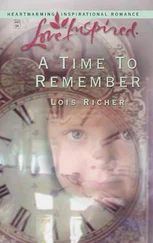Alexander Todd - A Time to Remember
Здесь есть возможность читать онлайн «Alexander Todd - A Time to Remember» весь текст электронной книги совершенно бесплатно (целиком полную версию без сокращений). В некоторых случаях можно слушать аудио, скачать через торрент в формате fb2 и присутствует краткое содержание. Город: Cambridge, Год выпуска: 1983, ISBN: 1983, Издательство: Cambridge University Press, Жанр: Химия, Биографии и Мемуары, на английском языке. Описание произведения, (предисловие) а так же отзывы посетителей доступны на портале библиотеки ЛибКат.
- Название:A Time to Remember
- Автор:
- Издательство:Cambridge University Press
- Жанр:
- Год:1983
- Город:Cambridge
- ISBN:0 521 25593 7
- Рейтинг книги:3 / 5. Голосов: 1
-
Избранное:Добавить в избранное
- Отзывы:
-
Ваша оценка:
- 60
- 1
- 2
- 3
- 4
- 5
A Time to Remember: краткое содержание, описание и аннотация
Предлагаем к чтению аннотацию, описание, краткое содержание или предисловие (зависит от того, что написал сам автор книги «A Time to Remember»). Если вы не нашли необходимую информацию о книге — напишите в комментариях, мы постараемся отыскать её.
A Time to Remember — читать онлайн бесплатно полную книгу (весь текст) целиком
Ниже представлен текст книги, разбитый по страницам. Система сохранения места последней прочитанной страницы, позволяет с удобством читать онлайн бесплатно книгу «A Time to Remember», без необходимости каждый раз заново искать на чём Вы остановились. Поставьте закладку, и сможете в любой момент перейти на страницу, на которой закончили чтение.
Интервал:
Закладка:
Sometimes people say it is a pity my stay in Manchester was effectively during the war years. No doubt there would have been a wider social life had there been no war, but, against that, I doubt whether the intimacy between me and my students would have developed to anything like the same extent in peacetime. It is also to be remembered that Alison and I were recently married and that our first two children were born during our stay in Manchester. In the early days of a family, I rather think it would take more than a war such as we had to blunt in any way the happiness we enjoyed.
The move to Cambridge was successfully accomplished with little interruption in our researches, although I think the university was rather taken aback by the great invasion. By the time we moved, the uranium workers and St Bartholomew's had gone and Queen Mary College was due to leave shortly. We had got in a good supply of the equipment we needed, and, although we had not got rid of the gas lighting, its removal and replacement were imminent. Before it was replaced, however, we had several fires in the laboratory. One I remember was alarming, although it did not do a great deal of damage. A member of the research group - I think it was Norman Whittaker - held up a large flask of near-boiling petroleum ether to the gas light over his bench to see whether all the solid material in it had dissolved; the resulting conflagration was quite spectacular.
Our family removal to Cambridge also had its lighter side. I was able to purchase a house in Barrow Road, but could not get possession of it until the war was actually over. To bridge the gap, I was able to rent a furnished house in Sedley Taylor Road belonging to Sir John Cockcroft who was, of course, involved elsewhere in the wartime atomic bomb project; the house was to be vacated by its then tenants, the Rev. J. Boys-Smith and his wife, in September 1944. Now at this time, owing to acute housing shortages, a house left empty for more than twenty-four hours was liable to be seized by the local authority or by squatters, so we had to make rather unusual arrangements for the move. Using our penicillin talisman we hired a lorry in Manchester which would take a substantial part of our laboratory equipment (as well as the personal effects of most of the migrating research school and the bits and pieces of household equipment we needed urgently), and arranged that it should go to Cambridge on the exact day when Boys-Smith was moving out. With the lorry went three of my research group, who camped out in the Sedley Taylor Road house until I and my family came down a day or two later. My own most vivid memory of that move is of the trip I made back to Wilmslow a day or two later to fetch the family cat, a black and white animal of dubious ancestry who gloried in the name Sir Samuel Hall. Sir Samuel did not approve of either the basket in which he was confined or the journey, and said so vigorously; we had an uproarious half-hour while changing trains at Rugby, while Sam competed vocally with about a hundred cheerful Italian prisoners of war who were being transferred from one camp to another. Overall, however, the move to Cambridge went pretty smoothly, and by the end of September 1944 we had settled in both at home and in the old University Chemical Laboratory in Pembroke Street.
In the laboratory Gilson and I began the process of reorganisation and revitalisation forthwith. We met with very little opposition, and even F. G. Mann who, perhaps not unnaturally, felt he had greater claims to the Cambridge chair than I had, gradually, if reluctantly, came round, after some rather tiresome behaviour, to the view that our reorganisation made life easier and better for everyone, including himself. From the start we had the full support of B. C. Saunders and of Hamilton McCombie, who, until his retirement not long afterwards, was a tower of strength and a mine of information about Cambridge in general and its chemistry school in particular. We began by tackling the library and introducing a centralised system for the purchase and issue of chemicals and equipment. My predecessor had used the departmental library as his private room; I gathered that access had been possible only through the goodwill of Miss Stoakley (the daughter of the former laboratory steward) who acted as a kind of secretary, although she had no shorthand and was a rather indifferent typist. This had two results - firstly that the library was inadequately used, and, secondly, that there was considerable uncertainty about the ownership of some of the contents (I discovered, to my surprise, that many of the books bought by the laboratory were stamped with my predecessor's book-plate). This uncertainty of ownership may explain why, following Pope's death and before I came to Cambridge, Pope's executors had sold a considerable section of the library, presumably in all good faith, including a complete run of Liebig's Annalen der Chemie to Boots Ltd, and added the proceeds to the estate. Fortunately, I was able to restore the position by getting some journals on permanent loan from the University Library, so that we did not suffer too much. But I remember well Charlie Lister's astonishment when I told him I did not wish to have my book-plate put in any books purchased by the laboratory! In setting up a central store (and incidentally reorganising the whole office administration) we called in everything lying around in private stores of present staff members and in the forgotten stores of those who had gone before, and combined them with a weird collection of stuff (including a dozen Lewis guns fitted with cameras and several gross of milk bottles) which was housed in a basement room called 'the store'; we did meet a little resistance from the owners of private stores, but they soon came round when they found how much better the new system was.
During the first year or so we were without two senior members of the Cambridge staff, F. B. Kipping and P. Maitland, who were serving with the armed forces. When they returned they both contributed a lot to our progress. Kipping I put in charge of all academic administration, and this he did excellently until his untimely death some fifteen years later. During that first year I was also able to persuade H. J. Emeleus to leave Imperial College and join us as Reader in Inorganic Chemistry. Emeleus was the outstanding inorganic chemist in the country, and we were extremely fortunate to get him; his Readership was soon converted into a Professorship, and inorganic chemistry was back on the map in Cambridge to everyone's advantage. We had a little trouble at first getting hold of some laboratory space for Emeleus' research. What would normally have been his area had gradually been taken over by U. R. Evans and his corrosion group (which really should have been in metallurgy and which, indeed, I transferred to that department when it was reorganised under Professor Austin). Corrosion work kept on acquiring space, because its progress appeared to demand that a continually growing series of laboratory benches should be covered with little glass beakers containing a variety of fluids into which pieces of metal had been placed, and which were simply left to stand there for months, or even, in some cases, years. The problem was solved when I pointed out to Evans that there was no need to cover all the benches with his beakers, and that these might be stacked somewhere in much less space. This apparently novel idea was accepted, and at once a substantial amount of laboratory space became available for Emeleus!
When I went to Cambridge I found that the university was run very differently from Manchester - and, I would guess, less efficiently. From my standpoint as head of a big scientific department, the Cambridge system of making a block grant which was paid into a departmental bank account each year was a very useful one, for it meant that the distribution of expenditure over various items in the budget could be varied a good deal, provided always that the auditors gave a satisfactory report on the accounts for transmission to the university's Financial Board. We did very well out of it in the early years, since our reorganisation soon revealed that the departmental budget was really much more adequate than had previously been believed, and the university was always prepared to listen sympathetically to us when we had a good case for increasing it. The university's contribution, together with generous grants placed at my disposal (especially by the Rockefeller Foundation and Hoffmann La Roche) in support of my researches, greatly facilitated the rapid build-up of my research school in Cambridge. Nevertheless, it seemed to me that the university's control was too slack during my early years in Cambridge; I was probably right in this, because it was tightened up very considerably later on. Although it, too, was changed within a few years, the system under which the university teaching staff was paid struck me as quite extraordinary. The stipend of a university lecturer was quite derisory (I think it was £150 p.a.) and included payment for a few hours of teaching. Undergraduate teaching over and above this was paid at an hourly rate. If the lecturer was a Fellow of a college he would receive in addition a college stipend plus payment for teaching or other work in college; in this way he could make quite a reasonable living. If he were not a Fellow, however, he received from the university a modest 'Fellowship Allowance', but if he were to get a living wage he had to do a lot of extra teaching. I well remember each year sitting down with a list of my staff members and, having first worked out what would be a reasonable salary for each individual, calculating the almost astronomical number of hours extra teaching (largely fictitious) they must do to get it and solemnly entering it in the official departmental return to the university.
Читать дальшеИнтервал:
Закладка:
Похожие книги на «A Time to Remember»
Представляем Вашему вниманию похожие книги на «A Time to Remember» списком для выбора. Мы отобрали схожую по названию и смыслу литературу в надежде предоставить читателям больше вариантов отыскать новые, интересные, ещё непрочитанные произведения.
Обсуждение, отзывы о книге «A Time to Remember» и просто собственные мнения читателей. Оставьте ваши комментарии, напишите, что Вы думаете о произведении, его смысле или главных героях. Укажите что конкретно понравилось, а что нет, и почему Вы так считаете.










